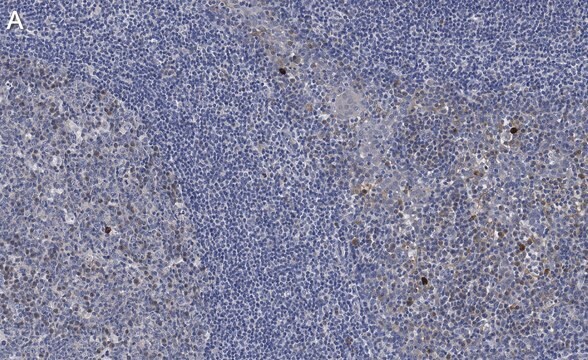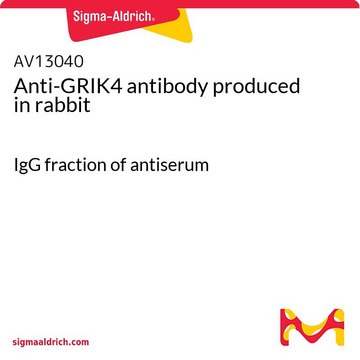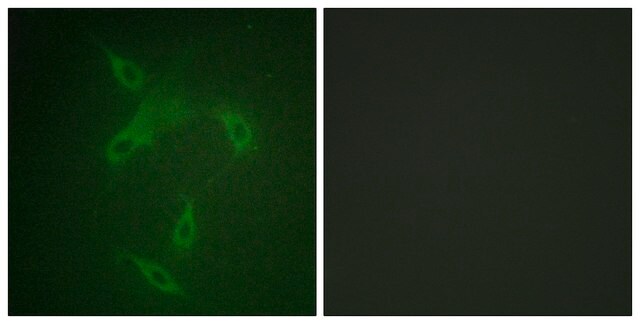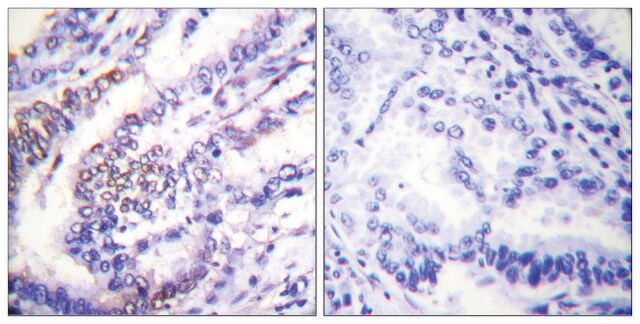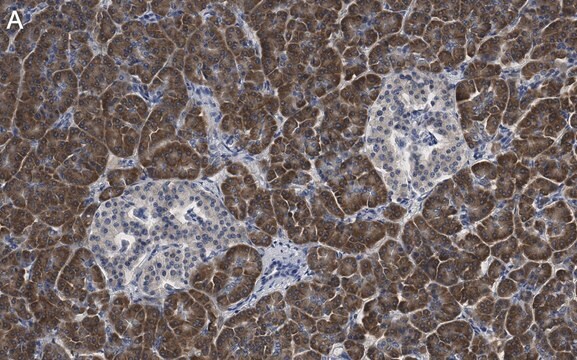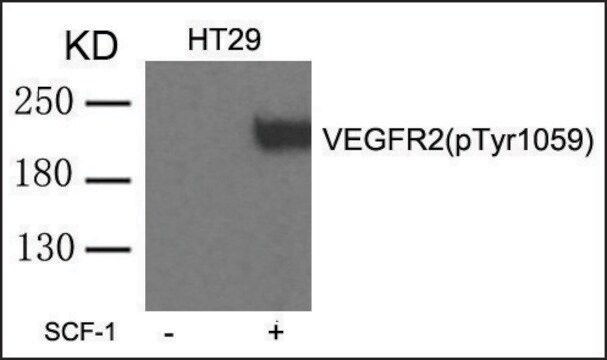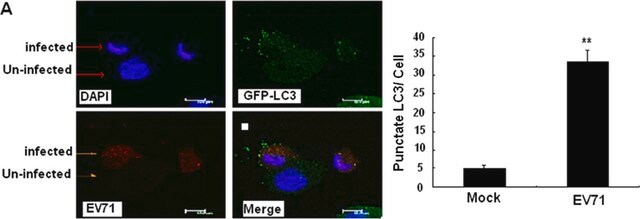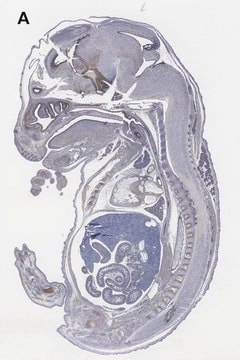ZRB1483
Anti-GADD153/DDIT3 Antibody, clone 3I18 ZooMAb® Rabbit Monoclonal

recombinant, expressed in HEK 293 cells
Sinónimos:
DNA damage-inducible transcript 3 protein;DDIT-3;C/EBP zeta;C/EBP-homologous protein;CHOP;C/EBP-homologous protein 10;CHOP-10;CCAAT/enhancer-binding protein homologous protein;Growth arrest and DNA damage-inducible protein GADD153
About This Item
Productos recomendados
origen biológico
rabbit
Nivel de calidad
recombinante
expressed in HEK 293 cells
conjugado
unconjugated
forma del anticuerpo
purified antibody
tipo de anticuerpo
primary antibodies
clon
3I18, recombinant monoclonal
descripción
recombinant, expressed in HEK 293 cells
Línea del producto
ZooMAb® learn more
Formulario
lyophilized
mol peso
calculated mol wt 19.17 kDa
observed mol wt ~27 kDa
purificado por
using Protein A
reactividad de especies
rat, mouse, human
envase
antibody small pack of 25 μL
características de los productos alternativos más sostenibles
Waste Prevention
Designing Safer Chemicals
Design for Energy Efficiency
Learn more about the Principles of Green Chemistry.
validación mejorada
recombinant expression
Learn more about Antibody Enhanced Validation
sustainability
Greener Alternative Product
técnicas
ELISA: suitable
affinity binding assay: suitable
western blot: suitable
isotipo
IgG
secuencia del epítopo
Unknown
Nº de acceso Protein ID
Nº de acceso UniProt
categoría alternativa más sostenible
, Aligned
Condiciones de envío
ambient
temp. de almacenamiento
2-8°C
modificación del objetivo postraduccional
unmodified
Información sobre el gen
human ... DDIT3(1649)
Descripción general
Especificidad
Inmunógeno
Aplicación
Evaluated by Western Blotting in NIH3T3 cells nuclear extract.
Western Blotting Analysis: A 1:1,000 dilution of this antibody detected GADD153/DDIT3 in NIH3T3 cells nuclear extract.
Tested applications
Western Blotting Analysis: A 1:1,000 dilution from a representative lot detected GADD153/DDIT3 in lysate from C6 cells and in HeLa cells treated with Tunicamycin (5 g/mL; 6 h).
Enzyme Immunoassay Analysis (ELISA): Serial dilutions from a representative lot detected recombinant Human GADD153/DDIT3.
Affinity Binding Assay: A representative lot of this antibody bound GADD153 DDIT3 with a KD of 7.2 x 10-6 in an affinity binding assay.
Note: Actual optimal working dilutions must be determined by end user as specimens, and experimental conditions may vary with the end user
Evaluated by Western Blotting in NIH3T3 cells nuclear extract.
Western Blotting Analysis: A 1:1,000 dilution of this antibody detected GADD153/DDIT3 in NIH3T3 cells nuclear extract.
Descripción de destino
Forma física
Almacenamiento y estabilidad
Información legal
Cláusula de descargo de responsabilidad
¿No encuentra el producto adecuado?
Pruebe nuestro Herramienta de selección de productos.
Código de clase de almacenamiento
11 - Combustible Solids
Clase de riesgo para el agua (WGK)
WGK 1
Punto de inflamabilidad (°F)
Not applicable
Punto de inflamabilidad (°C)
Not applicable
Elija entre una de las versiones más recientes:
Certificados de análisis (COA)
¿No ve la versión correcta?
Si necesita una versión concreta, puede buscar un certificado específico por el número de lote.
¿Ya tiene este producto?
Encuentre la documentación para los productos que ha comprado recientemente en la Biblioteca de documentos.
Nuestro equipo de científicos tiene experiencia en todas las áreas de investigación: Ciencias de la vida, Ciencia de los materiales, Síntesis química, Cromatografía, Analítica y muchas otras.
Póngase en contacto con el Servicio técnico